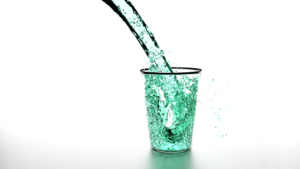
Colon Health Diet With Better Rated Supplements + TriVita Login
The colon, also known as the large intestines, is the final part of the digestive system. The colon plays a vital role in the final stages of food digestion and waste removal. Its main functions include holding waste, absorption of vitamins and nutrients, reclamation of water, and ensuring that there is a water balance. The colon also provides the surface for bacterial fermentation.
Colon Health Supplements, Understanding This Vital Organ-Amazon Login
Colon Health Diet – How Diet Affects Your Colon Health
Making knowledge-based decisions is the only way to enjoy a healthy life. The colon can benefit from a good diet and can equally be affected by a bad diet. The colon, just like the brain, bones, and heart, can benefit from certain specific foods. Colon health relies on the efficient absorption of nutrients and the collection of waste. When you are making diet plans, you need to understand which foods are good for your heart, brain, bones, and colon.
Access My Amazon Store Now,(Click Here), Access My Health And Wellness Store Now, (Click Here) Utilize Searchbar For Products
Seeking Your Inner Spiritual Foundation? (Click Here)
In this post, we look at a colon diet and how to effectively implement knowledge-based decisions when it comes to colon health. We will delve deeper into the matters affecting the colon, possible colon conditions, and the best foods to improve the performance of the colon. The good news is that, when the colon is functioning properly, your entire digestive system is healthy. A healthy digestive system results in enhanced metabolism and the overall well-being of your body.
Possible Health Conditions That May Affect The Colon

There are many health conditions that may affect the colon for various reasons. Some of the conditions arise due to diet, others are natural infections, and others are genetic. The conditions associated with colon health are so many that we cannot discuss all of them. Here are just but a few of the diet-related colon conditions and how to deal with them.
Colitis:
Also known as inflammatory bowel disease. This simply refers to the inflammation of the colon and is often caused by infections.
Diverticulosis:
(Click Here)-Healthy Diets
This condition refers to the bleeding of Diverticuli. Diverticuli refers to small weak areas of the colon muscular wall that may protrude and form pouches. When these pouches get infected or inflamed, they may bleed.
The common symptoms of Diverticulosis include hemorrhage— where blood may be visible through stool.
Inflammatory bowel disease:
This refers to either Crohn’s disease or ulcerative colitis. These conditions are caused by colon inflammation. Crohn’s disease affects the small and large intestines but can be managed through proper diet as we will see later on. The main symptoms of Crohn’s disease include diarrhea and abdominal pains.
Diarrhea:
Diarrhea itself is a condition that may affect the colon. The frequent urge to excrete loose stool is often caused by mild infections within the colon or small intestines. Diarrhea can be caused by eating unhealthy food or poisoned food.
Salmonellosis:
This is an infection by a bacteria known as salmonella and can cause serious problems to your colon. The symptoms of Salmonellosis include diarrhea and stomach cramps. The good news is that this condition can vanish without medication.
(Click Here)-Natural Vitamins
Shigellosis:

This condition occurs when a bacteria known as shigellosis attacks the colon. You can consume these bacteria through food or drinking water. The condition often results in fever stomach cramps and blood-filled diarrhea in some instances.
Colon polyps:
Polyps are mainly small growths within the colon. The growths remain small in size and do not qualify to be called tumors. However, in some cases, colon polyps may develop into cancer. Colon polyps should be removed as early as possible.
Colon cancer:
Colon cancer is a condition that affects,100, 000 Americans annually. Colon cancer can be prevented by undergoing regular scanning.
(Click Here)-Cancer
All these conditions and many others can affect the colon. Unfortunately, some of the conditions on this list are fatal if not treated in advance. It is, therefore, essential to ensure that you use the best diet to reduce the chances of colon diseases. Colon diseases such as cancer can be prevented by using the right diet. You should also ensure that you maintain high standards of hygiene to avoid infections associated with bacteria.
Understanding Your Knowledge-Based Decisions When It Comes To Colon Diet
The most important part of your health is making knowledge-based decisions. This involves deciding which foods to eat and which ones to avoid. Here are some knowledge-based factors you must consider in order to have a healthy colon.
(Click Here)-Diabetes
1. Avoid Red Meat
According to the American Cancer Society, consuming 100 grams of red meat on a daily basis increases the risk of colon cancer by 20%. Colon cancer is one of the most devastating colon conditions. Eating red meat as small as a 50-gram processed burger puts you at a higher risk of colon cancer. It is your duty to ensure that you protect your colon from cancer and other conditions by staying away from red meat. You can still have red meat but limit the amount of meat you take. The same applies to all processed foods, even those that do not include red meat.
Juice Your Way To The Healthier Lifestyle Naturally With Vitamix Blenders
Vitamix 6500 Blender, YouTube Video
The Vitamix 6500 Blender, (Click Here), Amazon.com
Is The Time Now, For Your Healthier Lifestyle? (Click Here)
Eat foods that are high in fiber such as nuts and vegetables to help with the cleaning of the intestines. Some of the essential fiber-rich foods include fruits such as raspberries, pears, apples, bananas, and oranges. According to HealthLine, the average American eats about 13 grams of fiber per day. This is way far below the daily requirement of 30 grams.
(Click Here)-Gout
Fiber provides a surface upon which waste is anchored for easy removal. Fiber helps prevents several conditions including; diverticular, constipation, diarrhea, and stomach cramps.
3. Make Milk Part Of Your Diet
Research shows that Vitamin D and calcium may help prevent colorectal cancer. Milk is one of the natural sources of calcium and vitamin D. However, the American Cancer Association discourages increased calcium intake for men. Taking excess calcium for men can lead to prostate cancer. With that said, taking milk will help you consume the recommended daily calcium, of 100 to 200 milligrams per day.
(Click Here)-Kidney Health
Only take natural low-fat milk. You can also use other products that are rich in calcium such as kale, spinach, and collard greens, among others.
Ongoing Knowledge of Healthier Eating Habits
4. Choose grains wisely
Cereals are an essential part of our daily diet. However, when planning your diet, you should settle for grains that add value to your health. Whole grains contain more nutrients and other essential components. According to the American Dietary Guidelines, every adult is expected to eat half of their daily grain intake as whole grains. Some of the commonly used whole grains include barley, wild rice, brown rice, oatmeal, and quinoa, among others. Grains contain colon-friendly minerals, vitamins, and fiber. Most grains are rich in antioxidants, which help fight attacks on the colon. When you buy wheat products such as bread, only settle for the whole grain options.
(Click Here)-Affordable Water Filtration Systems
5. Drink Plenty Of Water
Drinking plenty of water helps enhance food digestion. Water also helps flush out toxic substances from the body. It is recommended that an adult should take at least eight glasses of water per day. Taking such amounts of water will help clean the stomach and improve colon health. Drinking plenty of water also helps in the consumption of vital nutrients only found in drinking water.
6. Reduce Your sugar Sugar Intake

Taking too much sugar affects the colon just as it does affects other parts of your body. If you want to stay healthy for a long time, avoid high-sugar foods such as candy and cakes. According to research, ulcerative colitis occurs due to the consumption of high sugars. It is also important to note that, eating high-sugar foods may mean that you will gain a lot of weight.
(Click Here)-Fatty Liver Treatment
7. Regular Screening Is The Way Out
While there are many foods you can eat to improve the health of your colon, it is paramount to ensure that the colon is healthy. Screening is the only way to prevent cancer since tumorous cells can be identified at an early stage. Most people avoid undergoing a colonoscopy and take the big risk of colon cancer. A colonoscopy is the only way to reduce the risk of colon cancer in the long term.
During a colonoscopy, other common infections such as polyps are also detected. It is through such processes that most people get medical attention for conditions that may be harmful. The good news is that if colorectal cancer is determined early, you stand a chance to get full recovery. Research shows that 95% of people who are diagnosed with any form of colon cancer at an early age heal as they mature.
(Click Here)-Heart Health
Conclusion: How To Effectively Understand Your Knowledge-Based Decisions
You cannot enjoy your life if your colon is not healthy. You must find a way of always ensuring that your colon is healthy. The best way out is to eat healthy foods and maintain high standards of hygiene. High-fiber foods such as vegetables, fruits, and nuts are good for you. Also, ensure that you eat in a clean environment. Some of the common colon conditions are due to poor hygiene. Make sure your food is stored and prepared in a clean environment.
This article on The colon health diet has been another amazing pursuit of knowledge for us to articulate to every visitor of our better health for today blog, which is seeking to improve or simply maintain their colon health, thru as natural processes as possible, for your healthiest lifestyle as possible.
(Click Here)-Dementia

Make Your Decision Now, For Your Healthier Lifestyle, (Click Here)
Please always feel free to leave your very valuable and heartfelt comments below, for each and every person that is engaging our site for more knowledge, and that certainly includes me.
Perhaps the most prized goal of our blog is to return all of your questions in the most steadfast timeframe possible if this does not occur, I am certain that is because we are seeking the most beneficial content possible to deliver you the answers that you are seeking. I hope to hear from you soon, sincerely, Jack Butler, founder of betterhealthfortoday.com

Grant
Colon health is something that most of us petty much ignore until we begin to get older, and then we take it more seriously. We should probably take it more seriously while we are younger to avoid many of the problems that occur later in life. I’ve had 3 colonoscopies so far, but didn’t start until I was in my 50s. Now I have to get one every five years, whether I want to or not. My wife won’t let me skip one. She’s a nurse and knows what she’s talking about and won’t let me ignore things that I need to do.
I’ve been lucky. I don’t have any problems with my digestive tract. I know people who do, though, and I can see that their suffering is real. Controlling my diet hasn’t been a priority until my older years, either. I guess when we are young we think we are invincible. Now that I’m in my 60s I can see the value in your advice. Thanks.
Grant
Jack Butler
Thank you, Grant, for your wise and important comments within our better health for today blog, on the Colon health diet post, as they are paramount for the growth of our site in so many ways, and your thoughts are certainly no exception. It is once again always a true pleasure to receive thoughts on our content with the magnitude of yours Grant, as your wisdom and agreements are immeasurable. I hope to hear from you soon, sincerely, Jack
The New Conservative Wave
The colon, also known as large intestines, is the final part of the digestive system. The colon plays a vital role in the final stages of food digestion and waste removal. Its main functions include holding waste, absorption of vitamins and nutrients, reclamation of water, and ensuring that there is a water balance. I have never thought about the health of the colon and eating to keep the health of the colon. Very Cool!
Jack Butler
Thank you again, The New Conservative Wave, for your ongoing comments within our better health for today blog, on the Colon health post, as they are a true asset of the growth of our site in so many ways. it is always a pleasure to hear how beneficial our content is for our guests, and how they plan on implementing their new ideas. I hope to hear from you soon, sincerely, Jack
DorcasW
Hi Jack; I have read your well-informed blog. I think that every organ in the body is vital. Thus we should take the best care of our overall body. Keep in mind always; that the Colon is the exit gate for solid waste from the body.
I think the Colon should get a lot of care. We should always ask ourselves; what if the Colon is unfit to function? With this question in our minds, we ensure to eat the foods that bring value to the colon. So that among the other organs of the body, the Colon’s health is upbeat.
DorcasW
Jack Butler
Thank you always, Dorcas W, for your amazing and well-put comments within our better health for today blog, on the Colon health diet, as they are so vital for the ongoing growth of the growth of our site in so many ways. It is a real pleasure to receive your well-advised thoughts on the best ways to maintain our Colon health Dorcas W. I hope to hear from you soon, sincerely, Jack
Gwendolyn J
My father, sister, and brother both have had issues with their colon. I had to have my gall bladder removed while I was 3 months pregnant.
Since then I have paid attention to my gut health because that pain is not something I want to experience again.
Keeping red meat to a minimum is essential as well as increasing vegetable intake. I either steam our veggies or serve them raw.
This is valuable information for everyone. Thank you so much for sharing. I will be bookmarking for future reference.
Gwendolyn J
Jack Butler
Thank you, Gwendolyn J, for your ever so important and ongoing comments within our better health for today blog, on the Colon health diet, as they are a true asset to our sites ongoing growth in so many ways. I am always pleased to hear how beneficial our content has been for all of our viewers, and thankful that you are bookmarking it for future references. I hope to hear from you soon, sincerely, Jack
Dan
Thank you for the very informative article, Jack. There have been a few people in my family that have had colon related issues so it’s definitely something that stays on the top of my mind as far as health worries. I workout a ton and am very health oriented so I’m not concerned too much but you can always get better. I have been trying to keep my sugar intake very low but that hasn’t always been the case. I was very intrigued to learn that ulcerative colitis has been linked to high sugar intake. The more studies that seem to come out, the more many things point back to sugar being the culprit a lot of the time. I really learned a lot here. Thanks again!
Jack Butler
Thank you, Dan, for your very important and knowledge bearing comments within our better health for today blog, on the colon health diet, as they a paramount to the growth of our site in more ways than meets the eye. It is always a pleasure to receive this caliber of comments, Dan, as they are a true driven force for everyone’s knowledge and that includes me for sure. I hope to hear from you soon, sincerely, Jack